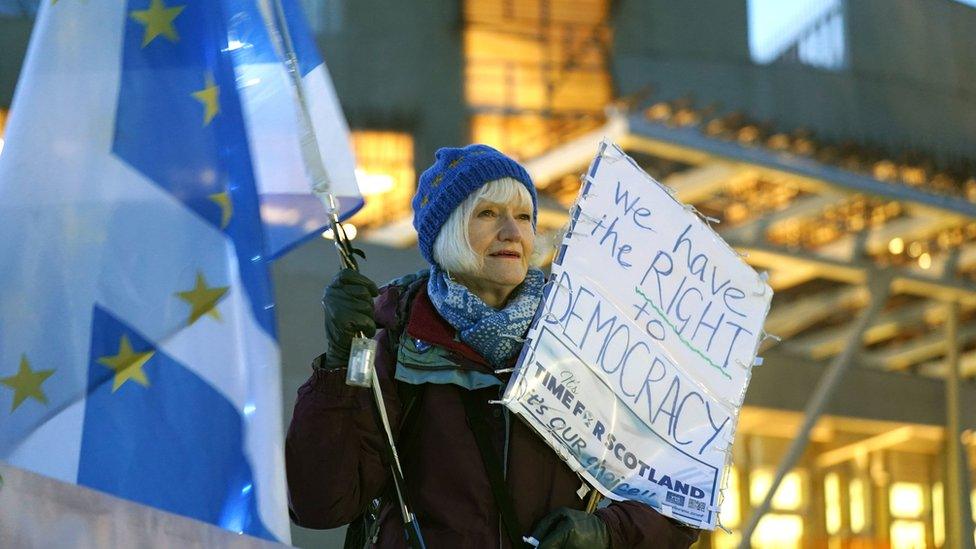John Curtice: What do polls say about independence?
- Published
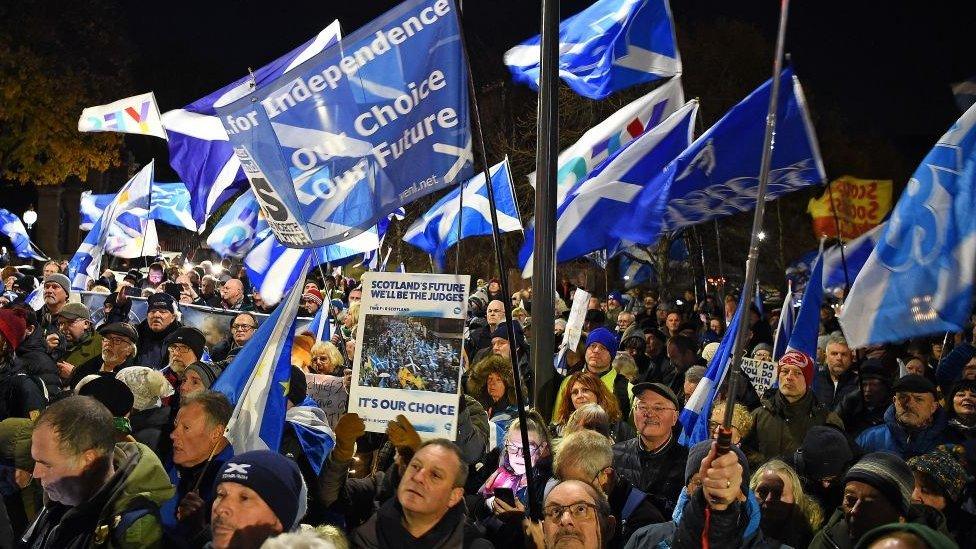
The overwhelming preference of Yes voters is to hold an independence referendum similar to that in 2014, according to the polls
Buffeted by a divisive leadership contest and by a police investigation into the party's finances, the SNP has a chance in Dundee on Saturday to regroup.
A day-long "independence convention" will consider how the party can now best advance its hopes.
It follows the UK Supreme Court decision in November last year which said the Scottish Parliament cannot legally hold an independence referendum on its own authority.
Rather, it has to await Westminster's permission and that is, of course, currently being denied.
Former First Minister Nicola Sturgeon's response to the dilemma in which the party found itself after the Supreme Court judgement was to propose that the SNP should regard the next UK general election as a "de facto" referendum.
The idea was that if more than half the votes were cast for parties in favour of independence, the Scottish government would regard that as a mandate to pursue independence.
Though, as was pointed out, even if that target were achieved, there was no guarantee that the UK government would be willing to recognise that mandate.
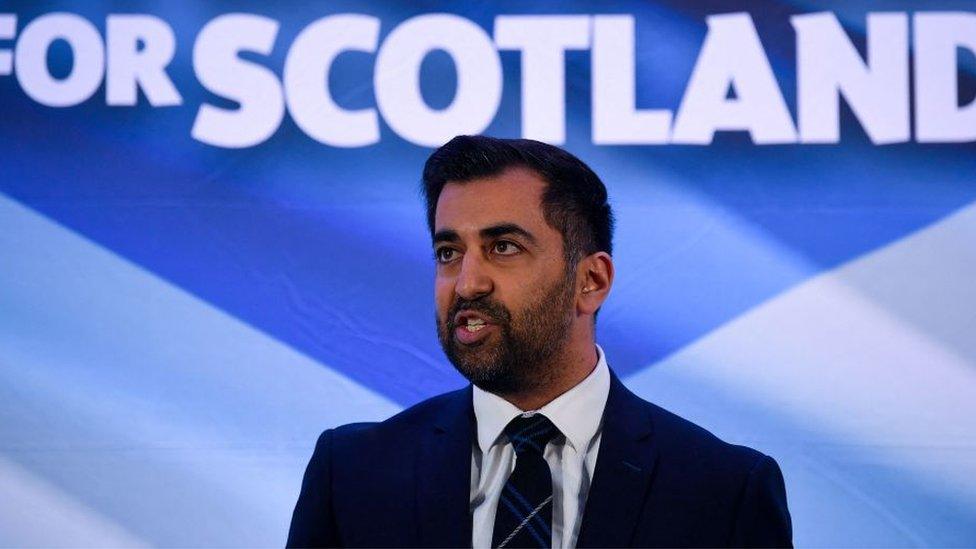
SNP leader and Scottish First Minister Humza Yousaf will address an independence convention in Dundee on Saturday
However, Ms Sturgeon herself acknowledged in her resignation statement, not everyone in the party, including many of its MPs, was happy with that idea.
Those doubts are shared by most of the party's voters.
According to a recent Panelbase poll, only 8% of those who voted for the party in 2021 back the idea of using the next Westminster election as a "de facto" referendum.
Rather more popular, with 15% support among SNP voters, is the idea of regarding the next Scottish Parliament election as a ballot on independence.
Even so, it seems that Ms Sturgeon's idea has largely failed to take hold in the minds of most of the party's supporters.
The overwhelming preference of both those who voted SNP in 2021 (69%) and of those who currently say they would vote Yes to independence (75%) is to hold an independence referendum similar to that in 2014.
Securing independence
A not dissimilar, though somewhat more nuanced picture also emerges from polling by Savanta.
That found that a quarter of SNP supporters backed the idea of regarding either the next Westminster or the next Holyrood election as a "de facto" referendum that would lead to independence.
That said, another 17% felt that a SNP "victory" at either a Westminster or Holyrood election should be regarded as a mandate to hold another referendum.
However, included in this poll was the idea, which rose in prominence during the party's leadership contest, that, instead of focusing on the process for securing independence, the party should concentrate on increasing support for independence itself.
Nearly one in three (32%) of SNP and Yes supporters backed the proposition that the party should be aiming for 60% support in opinion polls across all Scotland's voters.
That would mean achieving a position where the party could be more confident of winning whatever kind of ballot might eventually be held.
Support for independence is, at present, still well below that level.
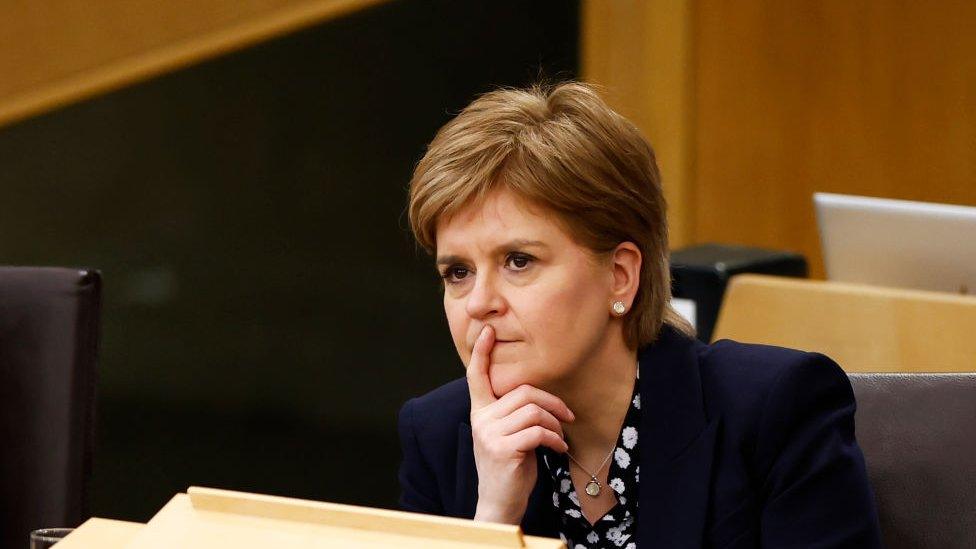
Nicola Sturgeon plan for a de facto referendum was unpopular with many within the SNP
On average it is currently running in the polls at 48%, little different from what it has been for most of the time since the last Holyrood election.
There is little sign that the SNP's difficulties in recent weeks and months have served to depress support for constitutional change.
Nevertheless, while Scotland is still almost divided down the middle on whether it should stay in the UK or become an independent country, it is far from certain that the Yes campaign would win any ballot held in the immediate future.
Perhaps this helps explain why, although nearly all Yes supporters (93%) tell Savanta that another independence referendum should be held at some point, they do not necessarily want one soon.
Only 41% believe a ballot should be held in the next year. Meanwhile, as we might anticipate, nearly all No supporters (91%) would prefer not to have another referendum at all, and certainly not any time soon.
Yet the 60% target is not one that has as yet ever been reached in the polls.
Immediate challenge
True, there was a sustained spike in support for independence during the worst of the Covid-19 pandemic, reaching at one point as high as 55%.
But that mood seemed to evaporate in the wake of the UK government's success in securing an early roll out of a Covid-19 vaccine.
A key question facing Saturday's convention therefore is whether the party can find more persuasive arguments in support of independence than it has been able to marshal so far.
Moreover, it faces that task at a time when the ability of the SNP to provide effective leadership and direction is being questioned.
The latest polls suggest that only about seven in 10 of those who currently back independence are minded to vote for the SNP at the next Westminster election, well down on the nearly nine in 10 who did so in 2021.
Following its divisive leadership contest, the party is struggling to fend off a challenge from a revived Labour party that is on average on just six points behind in the polls and might, according to Panelbase, now be neck and neck with the SNP.
In truth the most immediate challenge facing the SNP is whether it can regain the confidence of those who already support independence.
Only then might it have a chance of persuading more Scots of the merits of leaving the UK.
John Curtice is Professor of Politics at Strathclyde University and Senior Research Fellow at the, Scottish Centre for Social Research and The UK in a Changing Europe.
- Published22 September 2022
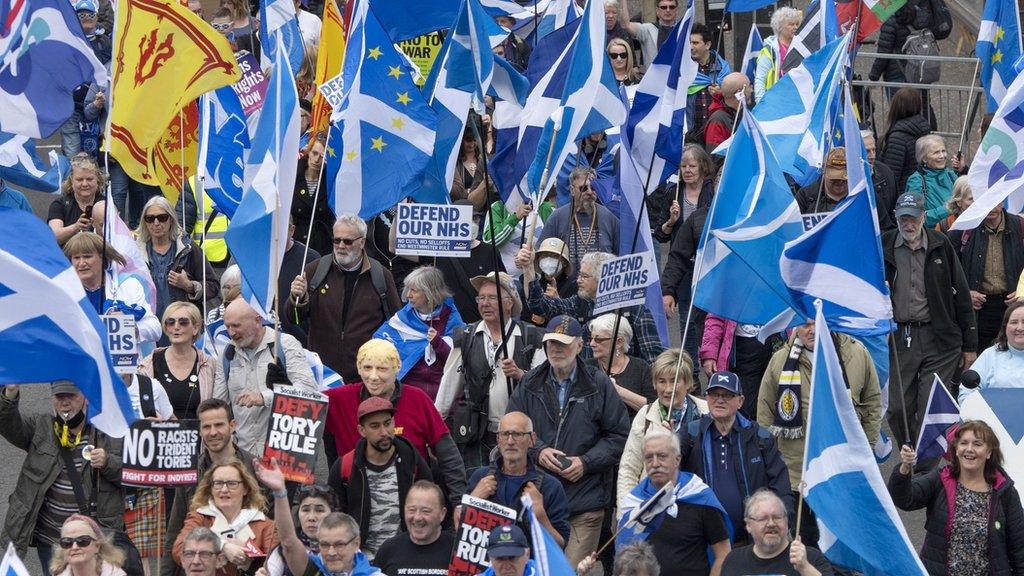
- Published23 November 2022
